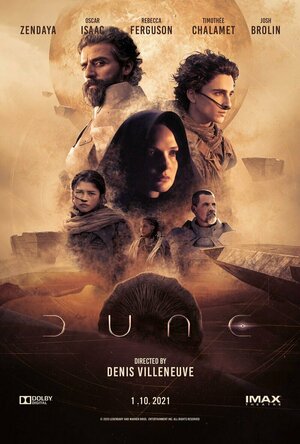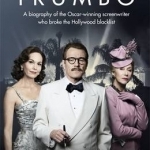
Tamil Note Taking Writer Faster Typing Keypad App
Productivity and Utilities
App
The Tamil Note Book app is an amazing application that allows you to take notes in Tamil! This is...
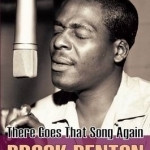
Brook Benton: There Goes That Song Again
Herwig Gradischnig and Hans Maitner
Book
Brook Benton was a magnificent singer who could handle anything from blues, jazz and soul to...
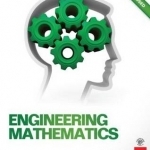
Engineering Mathematics
Book
A practical introduction to the core mathematics required for engineering study and practice Now in...
BankofMarquis (1832 KP) rated Dune (2021) in Movies
Oct 24, 2021
Lush, dense, rich, well cast and acted with eye-popping visuals that should be seen on the big screen, Directer Denis Villaneuve’s DUNE is everything that a fan of the book (that would include me) has been waiting for in a film version. It IS the “Peter Jackson LORD OF THE RINGS” version of this book - finally!
The question is, how does this film work for casual fans of the book - or for the myriad moviegoers that have never read the novel it is based on.
And, I’m afraid, the answer there is “not as well”. For Dune is a dense novel, filled with mythology that does go somewhat deep in the movie. This makes the pacing of this film problematic - especially at the beginning, for the novice - but is “deep enough” for those that have read the books.
Let’s start with what works - and that is the visuals that Director Denis Villeneuve (Blade Runner 2049) and his crew put on the screen. They are incredible. Unfortunately, most casual on-lookers to this film will decide to check out this 2 hour and 35 minute epic at home for free on HBO MAX, and that would be too bad. This film needs to be seen on the biggest screen possible to totally immerse you in this world.
Villeneuve perfectly cast this film from top to bottom starting with Timothy Chalamet as the hero of this book (and series) Paul Atreides. He brings the right balance of cockiness and unease to Paul who grows into something more than the “perfect prince” as the story progresses.
He is joined by some of the finest performers working today. Rebecca Ferguson and Josh Brolin bring their star power to the roles of Paul’s Mother (who is something more than Paul’s mother) and the head of the military (who is something more than the head of the military). Both of these roles needed to be played by a strong force - and both fill this need admirably.
The always good Oscar Isaac is the right choice for the role of Paul’s father, Duke Leto Atreides, who - by story necessity - is underwritten and, therefore, this film/role does not showcase his talents.
However, Jason Mamoa SHINES as Warrior Duncan Idaho. This is one of my favorite characters from the book and Mamoa brings his “A” game to this charismatic warrior/mentor to Paul. It was the largest pleasant surprise of the performances for me.
Alas, the villains of this piece - Baron Vladimir Harkonnen (Stellan Skarsgard) and his nephew, Beast Rabban Harkonnen (Dave Bautista) are relegated to background “mustache twirling” villains, they were not able to showcase their talents in this film. But, at least, we did not get the “golden speedo” that Sting wore in the 1984 David Lynch film version.
Also, not being able to showcase their talents is Javier Bardem and Zendaya as members of the Freman (the subjugated native people of the “Dune” planet). They are both in this film, briefly, as their characters rise and shine in the 2nd half of the book - so, hopefully, we’ll get to see more of them, then.
Which is the other part of this film that will turn off the casual viewer - it only covers (by necessity) the first half of the book, so only tells half a story with no real emotional payoff. For me, a fan of the books, I was fine with this as I am eagerly anticipating the 2nd film - but as a viewer who is just gonna “check this one out”, I’m not so sure that the visuals of this film will be enough to satisfy them.
Come for the visuals, stay for the performances and the dense story and prepare for Dune: Part 2.
Letter Grade: A-
8 stars (out of 10) and you can take that to the Bank(ofMarquis)
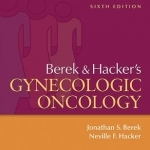
Berek and Hacker's Gynecologic Oncology
Jonathan S. Berek and Neville F. Hacker
Book
Get the evidence-based, practical guidance you need to provide state-of-the-art care to women with...
Economic Policy: Theory and Practice
Agnes Benassy-Quere, Benoit Coeure, Pierre Jacquet and Jean Pisani-Ferry
Book
Written by four recognized experts with senior experience in research and government, this text is...
Breast Imaging Companion
Book
A pragmatic, common sense approach to the detection, evaluation and management of breast diseases...
Nominated for an Oscar, BAFTA and Golden Globe,Trumbo is a recent film based on the original biography Dalton Trumbo written by Bruce Cook in 1977. Its adaptation to film provided the perfect opportunity to republish this extremely well researched book. With a forward written by John McNamara, the screenwriter of the motion picture, the story of Dalton Trumbo’s life is just as intriguing as it was almost forty years ago. But who is Trumbo?
If, like me, you have never heard of Trumbo or even the infamous “Hollywood Ten,” it may take a while for it to become clear as to why it was worth Cook’s time to produce a book about the man. Dalton Trumbo was a well-known screenwriter of films such as Papillon, Lonely Are The Brave and Roman Holiday as well as author of the novel Johnny Got His Gun. However these are not all he is famous for. During his life, Trumbo became a member of the Communist Party, which Hollywood branded as an Un-American Activity and thus blacklisted him, as well as other screenwriters, directors and actors. Ten of these men, Trumbo included, were imprisoned for their political beliefs – yet nothing prevented Trumbo from continuing his fairly successful career.
Interestingly, Cook begins the book with the final stages of Trumbo’s life. At time of writing Trumbo was still alive, although rather poorly. After contracting lung cancer, having a lung removed, and suffering a heart attack, Trumbo was a very sick man; nonetheless he was still enthusiastic about being interviewed and telling his personal story.
From his childhood, to his evening shifts at a bakery, Cook details Trumbo’s early life, emphasizing the hard upbringing he had before he found himself in the world of Hollywood. Although roughly 75% of the book focuses on Trumbo’s career, Cook highlights Trumbo as a family man, with both a wife and three children who he absolutely adores.
Cook constantly refers to the Hollywood Ten as a concept that the reader should already be familiar with. Granted, someone who picks up this book is more likely to do so having a prior interest in the central figure, and thus already know about his background; however those ignorant on the topic eventually gather a better understanding on the topic once reaching the relevant chapters. It also becomes clearer why Trumbo is worth reading/writing about – he may have been blacklisted, but he managed to break through all the barriers and reinstate his name and many others.
Reading this half a century after the event, it seems strange that Trumbo was imprisoned. He had not done anything intrinsically wrong, it was purely prejudice against his political beliefs that got him into the mess he found himself. But when you consider the events of the time: World War Two, the Cold War, the Korean War, and Vietnam; it is understandable why many feared those who claimed to be Communists.
Cook’s narrative does not flow as a story, and much of it is broken up with quotes from various people he interviewed. The timeline jumps about between past and present (1970s), which occasionally gets a bit confusing. A large part of the book is spent analyzing many of Trumbo’s works – both for screen and written formats – which, unless you have a particular interest, can be a little tedious.
It has got to be said that Bruce Cook was an exemplary writer with a great eye for detail. He did not jump to conclusions or only talk about things from his point of view. Instead he interviewed, what seems like, everyone who ever met Trumbo, and based his writing on fact backed up with numerous quotes and citations.
This edition of Trumbo contains a selection of photographs taken on the set of the movie. Disappointingly it does not contain any of Trumbo himself – you would think that some photos could have been tracked down!
Trumbo is not a book that will interest everyone. Most people today – particularly in England – will probably be unaware of who Dalton Trumbo was, and thus would only seek out this publication due to a fascination with film production. I have not seen the film, but after reading this and discovering how books go from novels, to screenplays to moving image, it would be interesting to find out which parts of Trumbo’s life made it onto the big screen.
<i>I received this book for free through Goodreads First Reads.</i>
Nominated for an Oscar, BAFTA and Golden Globe, <i>Trumbo</i> is a recent film based on the original biography <i>Dalton Trumbo</i> written by Bruce Cook in 1977. Its adaptation to film provided the perfect opportunity to republish this extremely well researched book. With a forward written by John McNamara, the screenwriter of the motion picture, the story of Dalton Trumbo’s life is just as intriguing as it was almost forty years ago. But who is Trumbo?
If, like me, you have never heard of Trumbo or even the infamous “Hollywood Ten,” it may take a while for it to become clear as to why it was worth Cook’s time to produce a book about the man. Dalton Trumbo was a well-known screenwriter of films such as <i>Papillon, Lonely Are The Brave</i> and <i>Roman Holiday</i> as well as author of the novel <i>Johnny Got His Gun</i>. However these are not all he is famous for. During his life, Trumbo became a member of the Communist Party, which Hollywood branded as an Un-American Activity and thus blacklisted him, as well as other screenwriters, directors and actors. Ten of these men, Trumbo included, were imprisoned for their political beliefs – yet nothing prevented Trumbo from continuing his fairly successful career.
Interestingly, Cook begins the book with the final stages of Trumbo’s life. At time of writing Trumbo was still alive, although rather poorly. After contracting lung cancer, having a lung removed, and suffering a heart attack, Trumbo was a very sick man; nonetheless he was still enthusiastic about being interviewed and telling his personal story.
From his childhood, to his evening shifts at a bakery, Cook details Trumbo’s early life, emphasizing the hard upbringing he had before he found himself in the world of Hollywood. Although roughly 75% of the book focuses on Trumbo’s career, Cook highlights Trumbo as a family man, with both a wife and three children who he absolutely adores.
Cook constantly refers to the Hollywood Ten as a concept that the reader should already be familiar with. Granted, someone who picks up this book is more likely to do so having a prior interest in the central figure, and thus already know about his background; however those ignorant on the topic eventually gather a better understanding on the topic once reaching the relevant chapters. It also becomes clearer why Trumbo is worth reading/writing about – he may have been blacklisted, but he managed to break through all the barriers and reinstate his name and many others.
Reading this half a century after the event, it seems strange that Trumbo was imprisoned. He had not done anything intrinsically wrong, it was purely prejudice against his political beliefs that got him into the mess he found himself. But when you consider the events of the time: World War Two, the Cold War, the Korean War, and Vietnam; it is understandable why many feared those who claimed to be Communists.
Cook’s narrative does not flow as a story, and much of it is broken up with quotes from various people he interviewed. The timeline jumps about between past and present (1970s), which occasionally gets a bit confusing. A large part of the book is spent analyzing many of Trumbo’s works – both for screen and written formats – which, unless you have a particular interest, can be a little tedious.
It has got to be said that Bruce Cook was an exemplary writer with a great eye for detail. He did not jump to conclusions or only talk about things from his point of view. Instead he interviewed, what seems like, everyone who ever met Trumbo, and based his writing on fact backed up with numerous quotes and citations.
This edition of <i>Trumbo</i> contains a selection of photographs taken on the set of the movie. Disappointingly it does not contain any of Trumbo himself – you would think that some photos could have been tracked down!
<i>Trumbo</i> is not a book that will interest everyone. Most people today – particularly in England – will probably be unaware of who Dalton Trumbo was, and thus would only seek out this publication due to a fascination with film production. I have not seen the film, but after reading this and discovering how books go from novels, to screenplays to moving image, it would be interesting to find out which parts of Trumbo’s life made it onto the big screen.
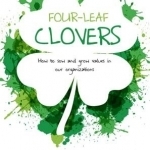
Four-Leaf Clovers: How to Sow and Grow Value in Our Organizations
Book
Responsible businesses are economic institutions which are committed to the values of our society....
